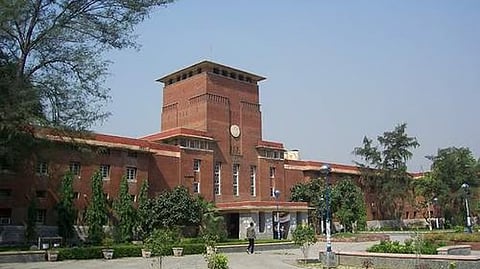

Allegations of widespread cheating rocked the recruitment exam for laboratory attendant posts at Delhi University’s (DU) Hindu College, after several candidates were found using mobile phones and Bluetooth devices to illicitly receive answers during the test, as reported by The Indian Express.
The Delhi Police have registered a case and initiated an inquiry into the matter.
The written examination, which took place across two sessions on Friday, April 25, at the college's Maurice Nagar campus, saw disruptions after invigilators caught multiple candidates attempting to use electronic devices to cheat.
Similar incidents reportedly surfaced during a session held on Saturday morning, April 26, necessitating police intervention.
Hindu College Principal Anju Srivastava filed five formal complaints with the Maurice Nagar police during the course of the exam, along with the confiscated devices and a written account of the alleged misconduct.
“Four candidates were apprehended with devices, while another managed to escape, although his mobile phone was seized. Relevant sections under the Bharatiya Nyaya Sanhita, including Section 318(2) related to cheating in examinations, have been invoked," said Raja Banthia, Deputy Commissioner of Police (North).
According to university officials, the candidates used discreet Bluetooth earphones to obtain answers from external sources while writing the examination.
"It was meant to be a simple lab attendant recruitment test, but the level of sophistication in cheating was concerning," a senior Delhi University official told The Indian Express.
On Saturday, authorities caught another 39 candidates, 35 male and four female, attempting similar methods of malpractice, a police officer confirmed. The police are now examining the extent of the breach.
Principal Srivastava stated that extensive precautions had been put in place to ensure fairness, including identity verification, document checks, frisking, and the use of metal detectors at multiple checkpoints within the college.
“Despite these measures, some candidates attempted to bypass the system using extremely small electronic devices with tiny earpieces," she said.
Faculty members expressed concern over the incident, saying it exposed a larger issue of examination security.
“Catching one candidate led to the uncovering of a network of individuals involved. There are strong indications that someone outside had access to the questions and was relaying answers," said a professor on condition of anonymity.
The recruitment drive attracted a massive response, with close to 25,000 candidates vying for the position, according to officials.
